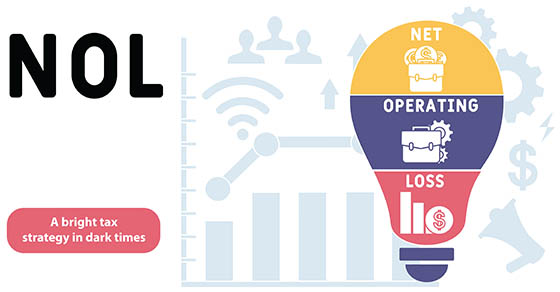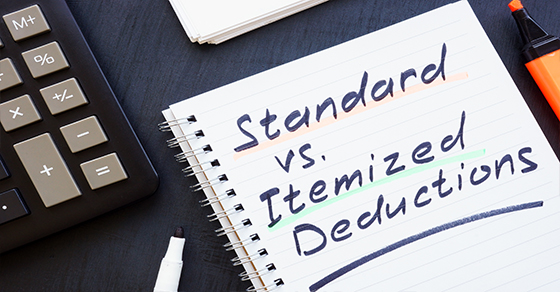The One Big Beautiful Bill Act (OBBBA) includes a number of beneficial changes that will help small business taxpayers. Perhaps the biggest and best changes are liberalized rules for depreciating business assets. Here’s what you need to know.

100% Bonus Depreciation Is Back
The new law permanently restores 100% first-year depreciation for eligible assets acquired and placed in service after January 19, 2025. The last time 100% bonus depreciation was allowed for eligible assets was in 2022. The deduction percentage was generally reduced to 80% for 2023, 60% for 2024, and 40% for eligible assets placed in service between January 1, 2025, and January 19, 2025.
Continue Reading
The One, Big, Beautiful Bill Act (OBBBA) has introduced significant tax changes that could affect families across the country. While many of the provisions aim to provide financial relief, the new rules can be complex. Below is an overview of the key changes.

Adoption Credit Enhanced
Parents who adopt may be eligible for more generous tax relief. Under current law, a tax credit of up to $17,280 is available for the costs of adoption in 2025. The credit begins to phase out in 2025 for taxpayers with modified adjusted gross income (MAGI) of $259,190 and is eliminated for those with MAGI of $299,190 or more.
Continue Reading

As 2025 began, individual taxpayers faced uncertainty with several key provisions of the tax law that were set to expire at the end of the year. That changed on July 4, when President Trump signed the One, Big, Beautiful Bill Act (OBBBA) into law. The OBBBA not only makes many TCJA provisions permanent but also introduces several new benefits — although some other tax breaks have been removed. Below is a summary of eight areas with changes that may impact you and your family.
Continue Reading
Retirement planning is essential for all families, but it can be especially critical for couples where one spouse earns little to no income. In such cases, a spousal IRA can be an effective and often overlooked tool to help build retirement savings for both partners — even if only one spouse is employed. It’s worth taking a closer look at how these accounts work and what the contribution limits are.

A spousal IRA isn’t a separate type of account created by the IRS, but rather a strategic use of an existing IRA. It allows a working spouse to contribute to an IRA on behalf of their non-working or low-income spouse. The primary requirement is that the couple must file a joint tax return. As long as the working spouse earns enough to cover both their own contribution and that of their spouse, both partners can take advantage of the retirement savings benefits offered by IRAs.
Continue Reading
College can be expensive. According to the College Board, the average sticker price for tuition and fees at private colleges was $43,350 for the 2024–2025 school year. The average cost for tuition and fees for out-of-state students at public colleges was $30,780. For in-state students, the cost was $11,610. Of course, there are additional costs for housing, food, books, supplies, transportation and incidentals that can add thousands to the total.

Fortunately, a surprisingly high percentage of students at many schools receive at least some financial aid, and your child’s chances may be better than you think. So, if your child cashes in on some financial aid, what are the tax implications? Here’s what you need to know.
Continue Reading
The U.S. Census Bureau reports there were nearly 447,000 new business applications in May of 2025. The bureau measures this by tracking the number of businesses applying for an Employer Identification Number.

If you’re one of the entrepreneurs, you may not know that many of the expenses incurred by start-ups can’t currently be deducted on your tax return. You should be aware that the way you handle some of your initial expenses can make a large difference in your federal tax bill.
Continue Reading
They say age is just a number — but in the world of tax law, it’s much more than that. As you move through your life, the IRS treats you differently because key tax rules kick in at specific ages. Here are some important age-related tax milestones for you and loved ones to keep in mind as the years fly by.

Ages 0–23: The Kiddie Tax
The kiddie tax can potentially apply to your child, grandchild or other loved one until age 24. Specifically, a child or young adult’s unearned income (typically from investments) in excess of the annual threshold is taxed at the parent’s higher marginal federal income tax rates instead of the more favorable rates that would otherwise apply to the young person in question. For 2025, the unearned income threshold is $2,700.
Continue Reading
If you or your employees are heading out of town for business this summer, it’s important to understand what travel expenses can be deducted under current tax law. To qualify, the travel must be necessary for your business and require an overnight stay within the United States.

Note: Under the Tax Cuts and Jobs Act, employees can’t deduct their unreimbursed travel expenses on their own tax returns through 2025. That’s because unreimbursed employee business expenses are “miscellaneous itemized deductions” that aren’t deductible through 2025. In the “One, Big, Beautiful Bill,” passed by the U.S. House and now being considered by the Senate, miscellaneous itemized deductions would be permanently eliminated. Keep in mind that pending legislation could still change.
Continue Reading
Do you believe you don’t need to worry about estate planning because of the current federal estate tax exemption ($13.99 million per individual or $27.98 million for married couples in 2025)? Well, think again. Even with this substantial exemption, creating a living trust can offer significant benefits, especially if your goal is to avoid probate and maintain privacy.

Here are some answers to questions you may have about this estate planning tool.
Continue Reading
As the use of digital assets like cryptocurrencies continues to grow, so does the IRS’s scrutiny of how taxpayers report these transactions on their federal income tax returns. The IRS has flagged this area as a key focus. To help you stay compliant and avoid tax-related complications, here are the basics of digital asset reporting.

The Definition of Digital Assets
Digital assets are defined by the IRS as any digital representation of value that’s recorded on a cryptographically secured distributed ledger (also known as blockchain) or any similar technology. Common examples include:
- Cryptocurrencies, such as Bitcoin and Ethereum,
- Stablecoins, which are digital currencies tied to the value of a fiat currency like the U.S. dollar, and
- Non-fungible tokens (NFTs), which represent ownership of unique digital or physical items.
Continue Reading
The IRS recently released the 2026 inflation-adjusted amounts for Health Savings Accounts (HSAs). Employees will be able to save a modest amount more in their HSAs next year.

HSA Basics
An HSA is a trust created or organized exclusively for the purpose of paying the “qualified medical expenses” of an “account beneficiary.” An HSA can only be established for the benefit of an “eligible individual” who is covered under a “high-deductible health plan” (HDHP). In addition, a participant can’t be enrolled in Medicare or have other health coverage (exceptions include dental, vision, long-term care, accident and specific disease insurance).
Continue Reading
The gig economy offers flexibility, autonomy and a way to earn income, but it also comes with tax obligations that can catch many workers off guard. Whether you’re driving for a rideshare service, delivering food, selling products online or offering local services like pet walking, it’s crucial to understand the tax implications of gig work to stay compliant and avoid costly surprises.

Understanding Your Tax Status
One of the biggest differences between traditional employment and gig work is your classification. Most gig workers are considered independent contractors, not employees. This means that companies you work with typically don’t withhold income taxes, Social Security, or Medicare taxes from your pay. Instead, you’re responsible for tracking and paying these taxes yourself.
Continue Reading
Many businesses turn to independent contractors to help manage costs, especially during times of staffing shortages and inflation. If you’re among them, ensuring these workers are properly classified for federal tax purposes is crucial. Misclassifying employees as independent contractors can result in expensive consequences if the IRS steps in and reclassifies them. It could lead to audits, back taxes, penalties and even lawsuits.

Understanding worker classification
Tax law requirements for businesses differ for employees and independent contractors. And determining whether a worker is an employee or an independent contractor for federal income and employment tax purposes isn’t always straightforward. If a worker is classified as an employee, your business must:
- Withhold federal income and payroll taxes,
- Pay the employer’s share of FICA taxes,
- Pay federal unemployment (FUTA) tax,
- Potentially offer fringe benefits available to other employees, and
- Comply with additional state tax requirements.
Continue Reading
Even well-run companies experience down years. The federal tax code may allow a bright strategy to lighten the impact. Certain losses, within limits, may be used to reduce taxable income in later years.

Who Qualifies?
The net operating loss (NOL) deduction levels the playing field between businesses with steady income and those with income that rises and falls. It lets businesses with fluctuating income to average their income and losses over the years and pay tax accordingly.
Continue Reading
Even after your 2024 federal return is submitted, a few nagging questions often remain. Below are quick answers to five of the most common questions we hear each spring.

1. When Will My Refund Show Up?
Use the IRS’s “Where’s My Refund?” tracker at IRS.gov. Have these three details ready:
- Social Security number,
- Filing status, and
- Exact refund amount.
Continue Reading
Stock, mutual fund and ETF prices have bounced around lately. If you make what turns out to be an ill-fated investment in a taxable brokerage firm account, the good news is that you may be able to harvest a tax-saving capital loss by selling the loser security. However, for federal income tax purposes, the wash sale rule could disallow your hoped-for tax loss.

Rule Basics
A loss from selling stock or mutual fund shares is disallowed if, within the 61-day period beginning 30 days before the date of the loss sale and ending 30 days after that date, you buy substantially identical securities.
Continue Reading
Determining “reasonable compensation” is a critical issue for owners of C corporations and S corporations. If the IRS believes an owner’s compensation is unreasonably high or low, it may disallow certain deductions or reclassify payments, potentially leading to penalties, back taxes and interest. But by proactively following certain steps, owners can help ensure their compensation is seen as reasonable and deductible.

Different Considerations for C and S Corporations
C corporation owners often take large salaries because they’re tax-deductible business expenses, which reduce the corporation’s taxable income. So, by paying themselves higher salaries, C corporation owners can lower corporate taxes. But if a salary is excessive compared to the work performed, the IRS may reclassify some of it as nondeductible dividends, resulting in higher taxes.
Continue Reading
Some tax sins are much worse than others. An example is failing to pay over federal income and employment taxes that have been withheld from employees’ paychecks. In this situation, the IRS can assess the trust fund recovery penalty, also called the 100% penalty, against any responsible person.

It’s called the 100% penalty because the entire unpaid federal income and payroll tax amounts can be assessed personally as a penalty against a responsible person, or several responsible persons.
Continue Reading
Suppose you’re thinking about setting up a retirement plan for yourself and your employees. However, you’re concerned about the financial commitment and administrative burdens involved. There are a couple of options to consider. Let’s take a look at a Simplified Employee Pension (SEP) and a Savings Incentive Match Plan for Employees (SIMPLE).

SEPs Offer Easy Implementation
SEPs are intended to be an attractive alternative to “qualified” retirement plans, particularly for small businesses. The appealing features include the relative ease of administration and the discretion that you, as the employer, are permitted in deciding whether or not to make annual contributions.
Continue Reading
With summer fast approaching, you might be considering hiring young people at your small business. If your children are also looking to earn some extra money, why not put them on the payroll? This move can help you save on family income and payroll taxes, making it a win-win situation for everyone!

Here are three tax benefits.
Continue Reading
For federal income tax purposes, the general rule is that rental real estate losses are passive activity losses (PALs). An individual taxpayer can generally deduct PALs only to the extent of passive income from other sources, if any. For example, if you have positive taxable income from other rental properties, that generally counts as passive income. You can use PALs to offset passive income from other sources, which amounts to being able to currently deduct them.

Unfortunately, many rental property owners have little or no passive income in most years. Excess rental real estate PALs for the year (PALs that you cannot currently deduct because you don’t have enough passive income) are suspended and carried forward to future years. You can deduct suspended PALs when you finally have enough passive income or when you sell the properties that generated the PALs.
Continue Reading
When we prepare your tax return, we’ll check one of the following filing statuses: single, married filing jointly, married filing separately, head of household or qualifying widow(er). Only some people are eligible to file a return as a head of household. But if you’re one of them, it’s more favorable than filing as a single taxpayer.

To illustrate, the 2025 standard deduction for a single taxpayer is $15,000. However, it’s $22,500 for a head of household taxpayer. To be eligible, you must maintain a household that, for more than half the year, is the principal home of a “qualifying child” or other relative of yours whom you can claim as a dependent.
Continue Reading
Staying compliant with payroll tax laws is crucial for small businesses. Mistakes can lead to fines, strained employee relationships and even legal consequences. Below are six quick tips to help you stay on track.

1. Maintain Organized Records
Accurate recordkeeping is the backbone of payroll tax compliance. Track the hours worked, wages paid and all taxes withheld. Organizing your documentation makes it easier to verify that you’re withholding and remitting the correct amounts. If you ever face an IRS or state tax inquiry, having clear, detailed records will save time and reduce stress.
Continue Reading
Suppose your adult child or friend needs to borrow money. Maybe it’s to buy a first home or address a cash flow problem. You may want to help by making a personal loan. That’s a nice thought, but there are tax implications that you should understand and take into account.

Get It in Writing
You want to be able to prove that you intended for the transaction to be a loan rather than an outright gift. That way, if the loan goes bad, you can claim a non-business bad debt deduction for the year the loan becomes worthless.
Continue Reading
Have you ever invested in a company only to see its stock value plummet? (This may become relevant in light of recent market volatility.) While such an investment might be something you’d rather forget, there’s a silver lining: you can claim a capital loss deduction on your tax return. Here are the rules when a stock you own is sold at a loss or is entirely worthless.

How Capital Losses Work
As capital assets, stocks produce capital gains or losses when they’re sold. Your capital gains and losses for the year must be netted against one another in a specific order based on whether they’re short-term (held one year or less) or long-term (held for more than one year).
Continue Reading
Are you starting a business with partners and deciding on the right entity? An S corporation might be the best choice for your new venture.

One Benefit of an S Corporation
One major advantage of an S corporation over a partnership is that shareholders aren’t personally liable for corporate debts. To ensure this protection, it’s crucial to:
- Adequately finance the corporation,
- Maintain the corporation as a separate entity, and
- Follow state-required formalities (for example, by filing articles of incorporation, adopting bylaws, electing a board of directors and holding organizational meetings).
Continue Reading
If you made significant gifts to your children, grandchildren or other heirs last year, it’s important to determine whether you’re required to file a 2024 gift tax return. And in some cases, even if it’s not required to file one, you may want to do so anyway.

Requirements to File
The annual gift tax exclusion was $18,000 in 2024 (increased to $19,000 in 2025). Generally, you must file a gift tax return for 2024 if, during the tax year, you made gifts:
- That exceeded the $18,000-per-recipient gift tax annual exclusion for 2024 (other than to your U.S. citizen spouse),
- That you wish to split with your spouse to take advantage of your combined $36,000 annual exclusion for 2024,
- That exceeded the $185,000 annual exclusion in 2024 for gifts to a noncitizen spouse,
- To a Section 529 college savings plan and wish to accelerate up to five years’ worth of annual exclusions ($90,000) into 2024,
- Of future interests — such as remainder interests in a trust — regardless of the amounts, or
- Of jointly held or community property.
Continue Reading
When it’s time to consider your business’s future, succession planning can protect your legacy and successfully set up the next generation of leaders or owners. Whether you’re ready to retire, you wish to step back your involvement or you want a solid contingency plan should you unexpectedly be unable to run the business, exploring different succession strategies is key. Here are five options to consider, along with some of the tax implications.

1. Transfer Directly to Family With a Sale or Gifts
One of the most common approaches to succession is transferring ownership to a family member (or members). This can be done by gifting interests, selling interests or a combination. Parents often pass the business to children, but family succession plans can also involve siblings or other relatives.
Continue Reading
You may wonder if you can claim itemized deductions on your tax return. Perhaps you made charitable contributions and were told in the past they couldn’t be claimed because you didn’t have enough deductions to itemize. How much do you need? You can itemize deductions if the total of your allowable itemized write-offs for the year exceeds your standard deduction allowance for the year. Otherwise, you must claim the standard deduction.

Here’s how we’ll determine if you can itemize or not for 2024 when we prepare your return.
Continue Reading
As a business owner, you may be eligible to claim home office tax deductions that will reduce your taxable income. However, it’s crucial to understand the IRS rules to ensure compliance and avoid potential IRS audit risks. There are two methods for claiming this tax break: the actual expense method and the simplified method. Here are answers to frequently asked questions about the tax break.

Who Qualifies?
In general, you qualify for home office deductions if part of your home is used “regularly and exclusively” as your principal place of business.
Continue Reading































